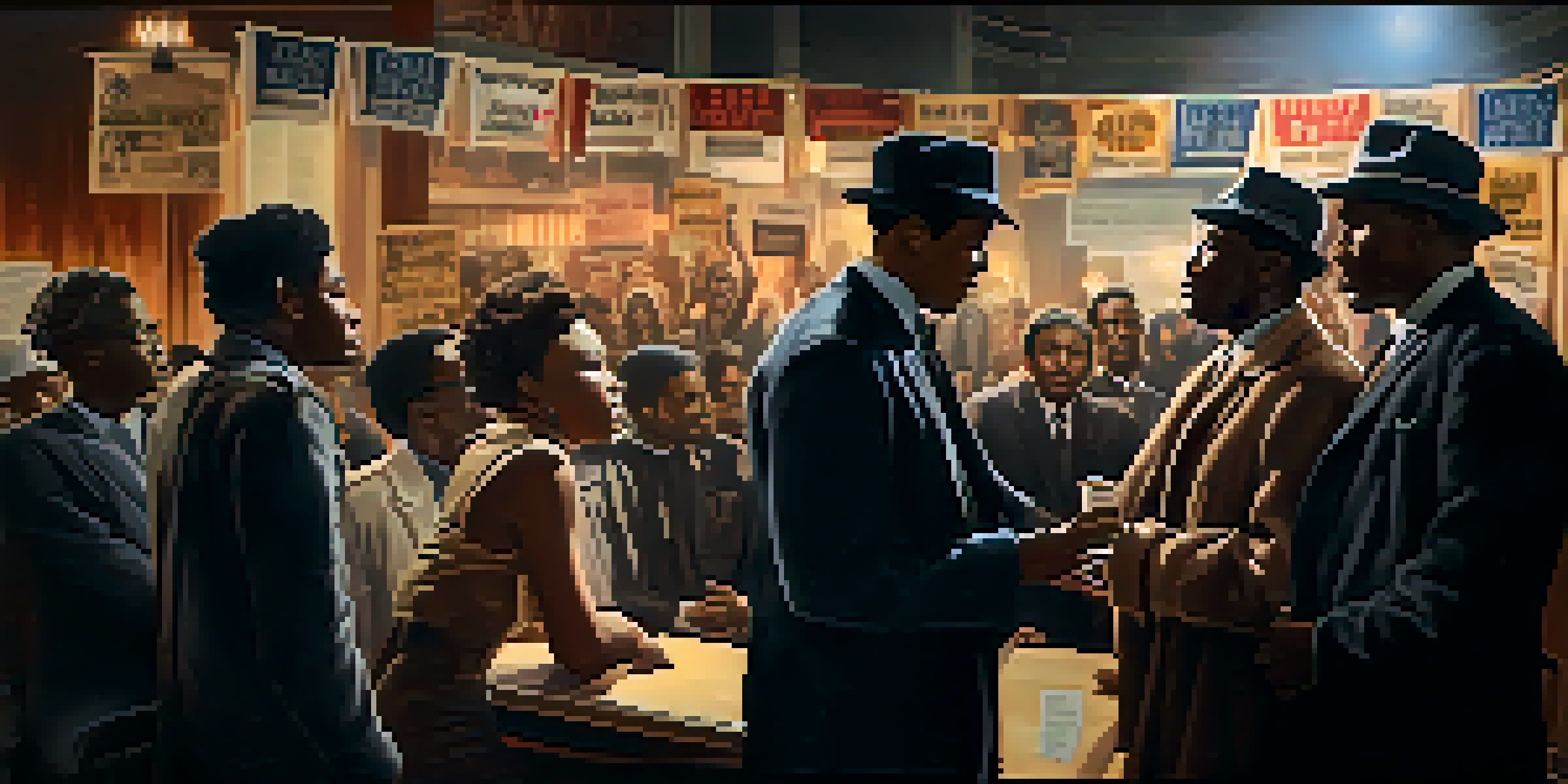Hollywood's Historical Accuracy: Fact vs. Fiction in Film

The Allure of Historical Dramas in Cinema
Historical dramas have a unique charm that draws audiences in. They transport viewers to different times and places, allowing them to witness pivotal events and figures. However, the question remains: how much of this is grounded in reality?
History is written by the victors.
Filmmakers often take creative liberties to enhance storytelling, but this can lead to a blurred line between fact and fiction. While the dramatic elements may captivate, they can also mislead viewers about the true nature of historical events. This phenomenon raises awareness about the importance of critical viewing.
An example of this is the film 'Braveheart,' which, while celebrated for its epic battles and emotional depth, takes significant liberties with William Wallace’s story. Such embellishments can spark interest in history but may also distort the facts.
The Role of Screenwriters in Shaping History
Screenwriters play a crucial role in how history is portrayed on screen. Their job is to craft narratives that are engaging, often requiring them to prioritize drama over accuracy. This artistic license can lead to compelling stories but might sacrifice the truth.

For instance, in 'The King's Speech,' the portrayal of King George VI's struggle with stuttering is both inspiring and dramatized. While the core of his story is true, certain elements were exaggerated for effect. This raises questions about the balance between storytelling and historical fidelity.
Historical Films Blend Fact and Fiction
Filmmakers often embellish historical events for dramatic effect, which can distort viewers' understanding of the past.
Ultimately, screenwriters must decide how to present their subjects. Their choices can influence public perception of historical figures and events, highlighting the responsibility they carry in shaping narratives.
The Impact of Audience Expectations on Accuracy
Audience expectations significantly influence how historical films are produced. Viewers often seek entertainment and drama, which can lead filmmakers to prioritize excitement over authenticity. This desire for thrilling content can result in historical inaccuracies.
The past is never dead. It's not even past.
Take, for example, the film '300,' which portrays the Battle of Thermopylae in a hyper-stylized manner. While visually stunning and entertaining, its depiction of events is far from accurate. Audiences may enjoy the spectacle but may walk away with a skewed understanding of history.
This dynamic presents a challenge for filmmakers aiming to educate their audience while keeping them entertained. Striking the right balance is essential to ensure that viewers are not only captivated but also informed.
Documentary Films: A Different Approach to History
Documentaries offer a different lens for examining historical events. Unlike dramatized films, they strive for factual accuracy and aim to educate the audience. However, even documentaries can face challenges regarding bias and interpretation.
For example, Ken Burns' 'The Civil War' is widely praised for its meticulous research and storytelling. Yet, some critics argue that it presents a particular perspective on events, emphasizing certain narratives over others. This highlights the notion that even factual presentations can be influenced by the creators' viewpoints.
Screenwriters Shape Historical Narratives
The choices made by screenwriters significantly influence how history is portrayed, often prioritizing drama over accuracy.
Ultimately, documentaries serve an important purpose in historical education. They can spark curiosity and encourage viewers to explore the past, but it's essential for audiences to approach them with a critical eye.
The Influence of Historical Context on Filmmaking
The context in which a film is made can greatly affect its portrayal of history. Filmmakers often reflect contemporary values and issues in their work, which can lead to reinterpretations of historical events. This showcases the evolving nature of historical narratives.
For instance, the film 'Selma' presents the Civil Rights Movement through a modern lens, addressing themes of social justice that resonate today. While it captures significant moments, some argue it simplifies complex realities for the sake of clarity and engagement.
Understanding the historical context behind a film's production helps viewers appreciate the layers of meaning in the narrative. It encourages audiences to consider how history is interpreted and reinterpreted over time.
The Challenge of Balancing Truth and Entertainment
Striking a balance between historical accuracy and cinematic entertainment is a constant challenge for filmmakers. While audiences crave engaging stories, they also benefit from learning about the past. This tension raises important questions about the purpose of historical films.
Films like 'A Beautiful Mind,' which tells the story of mathematician John Nash, illustrate this challenge well. While the film is engaging and inspirational, it takes liberties with Nash's life for dramatic effect. This can lead to mixed feelings among viewers who value authenticity.
Viewer Engagement Fuels Critical Thinking
Audiences hold the responsibility to critically engage with historical films, seeking out accurate information to enhance their understanding.
Ultimately, filmmakers must navigate this delicate balance carefully. The challenge lies in creating narratives that are both entertaining and enlightening, providing viewers with a meaningful experience.
The Role of Viewer Responsibility in Historical Films
As viewers, we have a responsibility to engage critically with historical films. While they can entertain and inspire, it’s essential to approach them with an understanding of their limitations. Being informed helps us appreciate the art of storytelling without losing sight of the facts.
For example, after watching a film like 'The Imitation Game,' which dramatizes Alan Turing's story, viewers should seek out additional resources to learn about his contributions and the truth behind the narrative. This ensures that we don’t take everything at face value.

Encouraging curiosity and research can enrich the viewing experience. By actively seeking out the truth, we can enjoy films while gaining a deeper understanding of history.